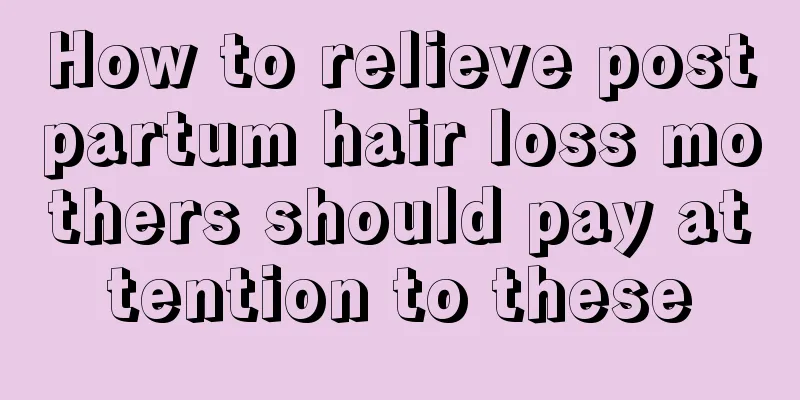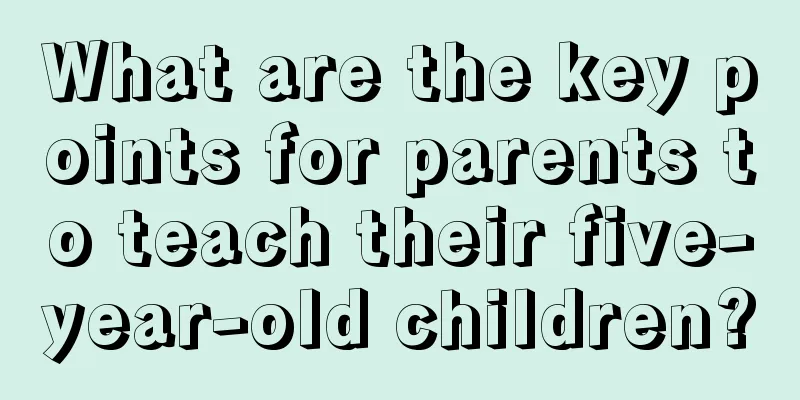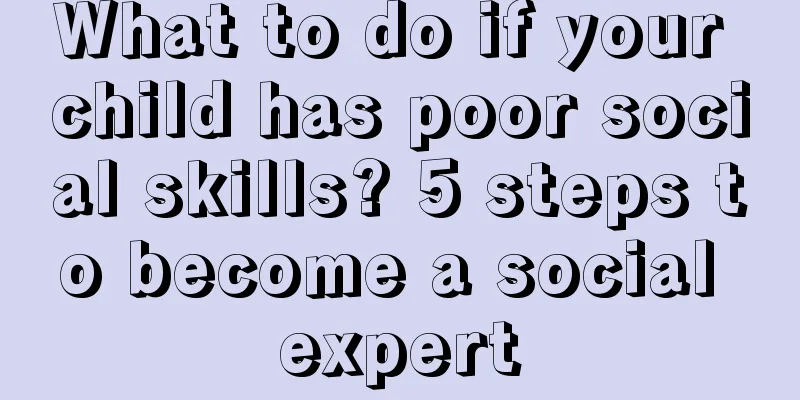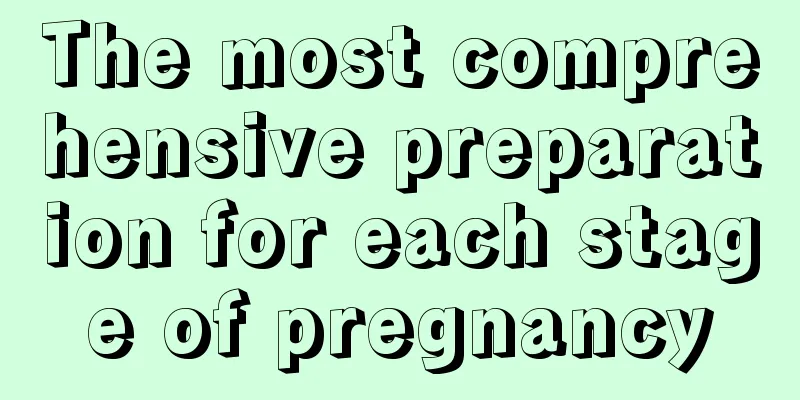How to relieve postpartum hair loss mothers should pay attention to these

|
Many new mothers have the worry of hair loss after giving birth. Why is this? What causes hair loss? How can we alleviate the symptoms of postpartum hair loss? What aspects should we pay attention to in life? Let the editor take mothers to understand and learn about it, so as to get rid of postpartum hair loss as soon as possible. How to relieve postpartum hair lossI believe many mothers have encountered such a situation. When washing their hair, a lot of hair will fall out, and there may even be signs of "baldness". Don't worry, first of all, you need to identify the "culprit" that causes hair loss, and then take appropriate medicine to protect your hair. 1. If you are malnourished because of dieting, it is recommended that you eat more nutritious food. After all, feeding the baby will also lose a lot of nutrition. Fruits, vegetables, meat, milk, and eggs are all necessary. Only by meeting the needs of the body can the growth of hair be met. 2. Don’t think that taking care of children is an excuse to be sloppy. While loving your baby, you should also love yourself. Combing your hair more often with a wooden comb can promote blood circulation in the scalp and is also beneficial to the metabolism of hair. 3. Wash your hair frequently to promote the growth of new hair. 4. Mothers should relax when taking care of their children and not put too much pressure on themselves, otherwise the symptoms of hair loss will be difficult to alleviate. Postpartum hair loss dietMost women need to breastfeed after giving birth, so it is not recommended to take Chinese medicine or other drugs to prevent and treat hair loss. Postpartum hair loss mainly requires a balanced diet, especially zinc, protein, and vitamins, and eating more fruits and vegetables, seafood, beans, and eggs. Here are some foods suitable for postpartum hair loss. 1. Walnut porridge 50 grams of walnut kernels, grind into powder, cook porridge with 100 grams of polished rice, and eat it once in the morning and evening every day. It can not only replenish the body after childbirth, but also has the effect of blackening hair. 2. Black sesame porridge 20 grams of black sesame, roast and grind into powder and cook with 50 grams of polished rice, add appropriate amount of salt or sugar. It has the effect of nourishing kidney and moistening intestine, blackening hair and beautifying. Does postpartum hair loss require treatment?Postpartum hair loss is only a temporary physiological phenomenon, which can usually return to normal automatically and does not require treatment. Just wash it properly and do not use shampoo that is too irritating. However, if it is accompanied by mental or dietary reasons, you need to seek treatment from a professional doctor. The root cause of postpartum hair loss1. Changes in hormone levels Estrogen promotes hair growth, so during pregnancy, as the mother's estrogen secretion increases, the life of the hair will be extended and the rate of hair loss will slow down. After giving birth, as the estrogen level drops significantly, the life of the "excessive" hair during pregnancy will expire and fall out. 2. Be alert to pathological factors Mothers who have experienced postpartum hemorrhage and hemorrhagic shock may suffer from Sheehan syndrome. This disease has an obvious clinical manifestation, that is, the hair on the whole body falls off, and the hair on the head, eyebrows, pubic hair, and armpits will all fall off and become sparse. If these symptoms occur, do not take it lightly and seek treatment under the guidance of a doctor as soon as possible. 3. Postpartum nutrition is not enough Some mothers are eager to lose weight soon after giving birth, or even during the confinement period, and want to quickly return to their pre-pregnancy slim figure, so they take extreme measures such as dieting. Little do they know that nutrition during breastfeeding is very important for postpartum mothers, which is not only related to breastfeeding of the baby, but also to the health of the mother herself. If you go on a diet, it will cause obvious malnutrition, lack of nutrients such as protein, vitamins, minerals, etc., and it will not be able to meet the nutritional needs of normal hair growth and metabolism, thus causing hair loss. 4. Psychological factors Many mothers suffer from excessive mental stress after childbirth, which is also an important cause of postpartum hair loss. After childbirth, the excitement brought by the birth of a new life will soon dissipate, followed by various worries and anxieties. What should I do if my milk is insufficient? Will the baby get sick? My body has been deformed, will it return to the past?... Because mothers worry about various problems, they are prone to anxiety and fragility, and serious cases will develop into postpartum depression. These negative emotions can lead to autonomic dysfunction and dysfunction of the nerves that control the blood vessels of the scalp, thereby affecting the blood supply to the scalp and causing hair to fall out due to malnutrition. |
>>: What kind of soup is good to drink in early pregnancy? What are the common soups for abortion?
Recommend
What kind of shoes should I wear during confinement in winter? What kind of shoes should I wear during confinement in winter?
Mothers who are in confinement in winter must pay...
How to promote uterine recovery after childbirth? What to do if the uterus does not recover well after childbirth?
If the uterus of a woman does not recover properl...
Fallopian tube blockage IVF success rate Can IVF be done if fallopian tube is blocked?
Blocked fallopian tubes can cause infertility, so...
Is it good for children to drink boiled water? The benefits of drinking boiled water for children
People always say, "Boiled water is better t...
The most complete and detailed maternity bag list in history, you can’t go wrong by buying according to it!
For new mothers, what should they bring before go...
What are the signs before childbirth and what should be done to prepare for childbirth?
Some women experience abdominal pain before their...
Will boiling water destroy the nutrition of milk powder? What is the best water temperature for mixing milk powder?
Many careless parents will directly use boiled wa...
How to prevent premature birth? 5 things expectant mothers should do
Premature babies are weaker than normal babies. T...
Symptoms of ADHD in children. What should I do if my child is hyperactive?
It is a sign of health for a child to be lively a...
How to treat insufficient milk after childbirth? Five treatment methods for you to choose
The most embarrassing thing about feeding a baby ...
What diseases should babies prevent in spring? Four popular spring diseases
As winter slowly passes, everything begins to rev...
What is the reason for the newborn's yellow hair? What should I do if the newborn's hair is yellow?
My baby is less than a month old and his hair is ...
What materials are good for baby tableware? 4 major materials comparison
The most common type of tableware on the market i...
Can children with indigestion eat eggs? What are the reactions of children with indigestion?
Children have poor immunity and sometimes they do...
What are the benefits and help of having a dog at home with children?
Puppies are very cute, but they are still huge fo...









